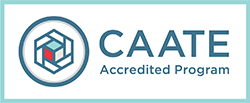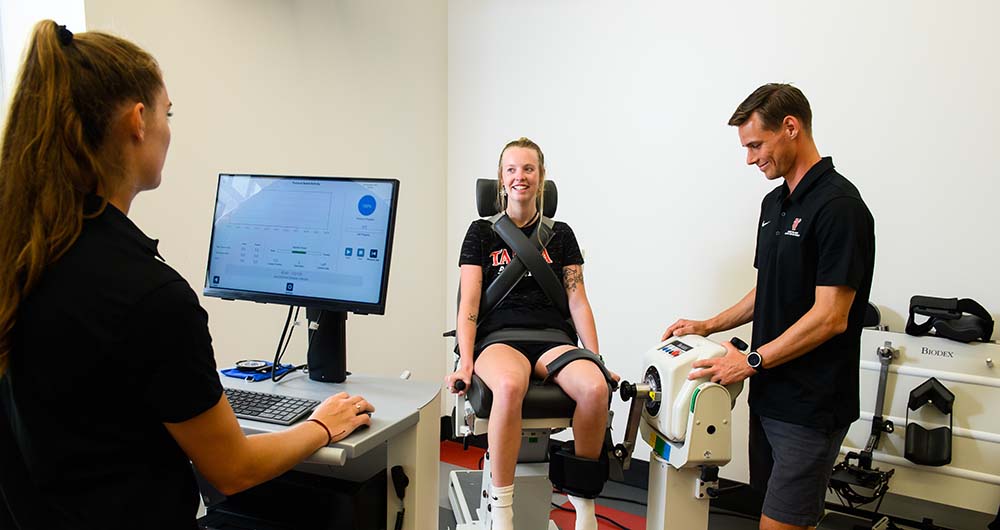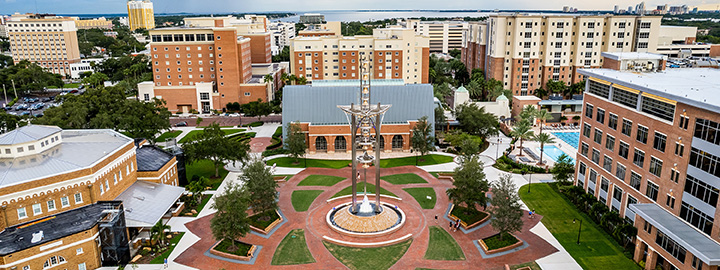Follow Us
Program Outcomes

UT’s athletic training program is accredited by the Commission on Accreditation of Athletic Training Education (CAATE).

Athletic training encompasses the prevention, examination, diagnosis, treatment and rehabilitation of emergent, acute or chronic injuries and medical conditions. Athletic training is recognized by the American Medical Association (AMA), Health Resources Services Administration (HRSA), and the Department of Health and Human Services (HHS) as an allied healthcare profession.
The 3+2 Master of Science in Athletic Training (MSAT) program is divided into two components:
- Students who begin the program as direct-entry first-year students spend their first three years completing the required Spartan Studies coursework and required prerequisite courses. Direct-entry students who meet academic and professional behavior requirements continue into the two-year professional phase of the program after their third year.
- Students who begin as transitional students must complete the required Spartan Studies coursework and required prerequisite courses. Transitional students must apply for admission to the two-year professional phase through the ATCAS application system.
- The two-year professional phase of the program includes coursework in risk reduction, wellness and health literacy, critical incident management, examination and clinical diagnosis, therapeutic intervention, and rehabilitation of injuries and medical conditions. Students participate in clinical experiences each semester in a variety of practice settings.
- These students will earn a Bachelor of Science in Health Science degree upon successful completion of Year 4. Please note: students must have earned a minimum of 105 credits prior to entry into the first year of the professional program.
- These students will earn a Master of Science in Athletic Training degree upon successful completion of Year 5.
The athletic training professional program is designed to offer the knowledge, skills and experience necessary for a student to become eligible to take the Board of Certification national examination. The program is structured to prepare students for professional practice in athletic training and graduate studies in athletic training. Read more about where athletic trainers work in this guide.
This program is accredited by the Commission on Accreditation of Athletic Training Education (CAATE). Because of the nature of the clinical education portion of the program, the athletic training program is selective, and space is limited.
- Request More Information
- M.S. in Athletic Training
- Accelerated B.S. to M.S.
- Athletic Training Videos




